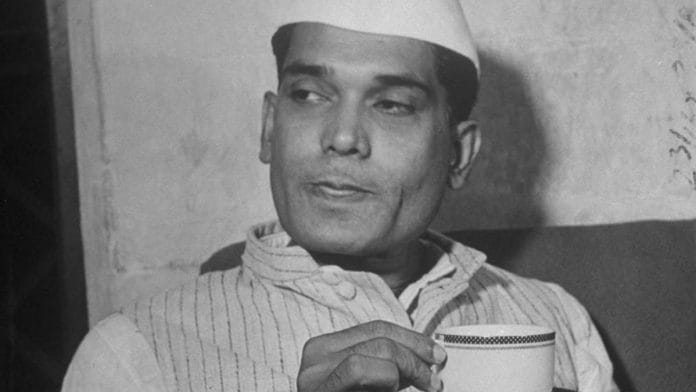During a panel discussion on a recently launched biography of Jayaprakash Narayan, writer and senior journalist Om Thanvi said it was important to discuss the role of the Jana Sangh and the impact the RSS and other leaders had on JP and the movement.
The book, titled The Dream of Revolution: A Biography of Jayaprakash Narayan, is written by Bimal Prasad and Sujata Prasad. Apart from the authors, the discussion was joined by historian and biographer Professor Rajmohan Gandhi, photojournalist Raghu Rai, author Narayani Basu and journalist and moderator Suhas Borker.
“There should have been a discussion about people from Jana Sangh and RSS, the way young Jana Sangh leaders from that time – whether it was Sushil Modi or Ravi Shankar Prasad, could easily associate themselves with the movement, it had somewhere hurt JP’s image. The way RSS leaders associate themselves with such movements, whether it was the JP movement back then, or the Anna Andolan in recent times, it is a matter of discussion,” Thanvi said.
“JP, the great revolutionary dreamer, is the best prime minister India never had,” said senior journalist Ajit Jha, and almost everyone present in the audience nodded in agreement.
The 230 page-book, according to Sujata Prasad, has the DNA of her late father Bimal Prasad, former Indian ambassador to Nepal, who was close to JP and was working on editing the freedom fighter’s complete works before his death. Sujata said she first tried to write the book in her father’s style but gave up soon as their writing style was very different, and finished it in her own writing style. Prasad’s father passed away in 2015 after which she began working on the book.
“My father lived a life based on JP’s ideas..he was working on editing 10 volumes of JP’s complete works, something that colonised his consciousness. I also have memories of JP from my teenage days”, said Sujata Prasad.
According to Rahmohan Gandhi, who attended the discussion virtually from the US, JP’s personality leaps out of the book. “I welcome this fine book, which in less than 230 pages tells the story of an extraordinary man, an acute thinker, a calm and persuasive speaker, and a daring revolutionary,” he stated, calling Sujata’s writing style “fresh”. He also pointed out a factual error in the book regarding a February 1946 mutiny in the Royal Indian Navy.
Outlook magazine’s senior editor Ajit Kumar Jha, who was also present at the discussion, disagreed with the barrage of Left-wing criticism on JP’s life. “One of the criticisms is that JP was the one who brought the Jana Sangha into mainstream politics. If it is true, then Jana Sangha would not have been limited to just two seats in Indian Parliament in 1984. This was almost 10 years after JP agitation began in Bihar. The CPM and even some sections of CPI (ML) Bihar, were all supporters of JP. It was the first time in India when one could see a broad rainbow coalition- the Left wing, the Jana Sangh and the socialists at that time,” said Jha.
Also read: The cruel truth is that Jayaprakash Narayan was let down by his own followers
Divided on JP’s end
The book also mentions the sad death that JP endured. “Stripped of every vestige of self-worth, Jayprakash died a sad death,” Sujata Prasad writes in the biography. She says, “his (JP’s) dream of revolution, which once brought a powerful government down to its knees, unfortunately just remains a dream”. However, several panelists disagreed with this “pessimistic ending” in the book.
Ajit Jha said, “Historically you must assess the book from a long term perspective..if we look at Bihar politics, its realignment happened because of JP in last 30 years..whether it is Lalu, Nitish, Ravi Shankar Prasad, Sushil Modi..all these were JP’s followers…the Congress has disappeared from the state completely. It is actually an outcome of the JP Movement…in that sense the dream still remains.”
Rajmohan Gandhi echoed the same. “I see heroism in the way JP left us, his big dreams are what he symbolises”.
Recalling his personal experiences with JP and his iconic lathicharge photo, photojournalist Raghu Rai got emotional. “Where are those magnificent men whom we remember today and cry our hearts out, ” he said.
Rai remembered his association with the leader and threw light on JP’s kind and gentle self, his fondness for journalists and his dignified personality, owing to which he would even speak about Indira Gandhi with respect during the Emergency days despite visible ideological differences.
(Edited by Anurag Chaubey)






